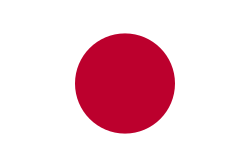| Japan at the Olympics | |
|---|---|
 | |
| IOC code | JPN |
| NOC | Japanese Olympic Committee |
| Website | www |
| Medals Ranked 10th |
|
| Summer appearances | |
| Winter appearances | |
Japan first participated at the Olympic Games in 1912, and has competed at almost every Games since then. The nation was not invited to the 1948 Games after World War II, and was part of the American-led boycott of the 1980 Summer Olympics in Moscow.
Contents
- Hosted Games
- Cancelled games
- Unsuccessful bids
- Medal tables
- Medals by Summer Games
- Medals by Winter Games
- Medals by summer sport
- Medals by winter sport
- Medals in art competitions
- Medalists
- Youth Games medal tables
- Medals by Summer Youth Games
- Medals by Winter Youth Games
- Medals by summer sport 2
- Medals by winter sport 2
- Hosted Olympics mottos
- 1964 Summer Olympics
- 1972 Winter Olympics
- 1998 Winter Olympics
- 2020 Summer Olympics
- See also
- Notes
- References
- External links
Since its first (ultimately canceled) bid in 1940, Japan has hosted the Olympics four times: in 1964, 1972, 1998, and 2021 (originally 2020). Each occasion coincided with critical turning points in Japan’s domestic development or global standing. The 1964 Tokyo Olympics were a pivotal moment in Japan’s postwar recovery, offering a visual spectacle of modernization that included the unveiling of the Shinkansen bullet train and the rapid reconstruction of Tokyo’s infrastructure. The event symbolized Japan’s reintegration into the international community after its defeat in World War II, marking its transition from a militaristic empire to a peaceful economic power aligned with Western liberal democracies. [1]
The Olympics’ utility as a crisis-response tool became even more evident with the 1998 Nagano Winter Olympics, held in the shadow of the Asian Financial Crisis. While neighboring countries like South Korea and Thailand struggled with IMF-imposed austerity, Japan sought to distinguish itself as a stable economic force capable of weathering regional turmoil. [2] The Nagano Olympics not only aimed to boost tourism and consumer confidence but also featured performances by Western orchestras and artists, symbolizing Japan’s cultural connectivity and shared values with the West.
The decision to pursue the 2020 Tokyo Olympics—despite the enormous public cost and eventual delay due to COVID-19—reflected similar motivations. Government officials emphasized the Games as a necessary stimulus for Japan’s sluggish economy and an opportunity to showcase its technological sophistication and preparedness in crisis. [2]
Japan won its first medals in 1920, and its first gold medals in 1928. Japanese athletes have won 542 medals at the Summer Olympic Games (except art competitions), with the most gold medals won in judo, gymnastics, wrestling, and swimming, as of the end of the 2020 Summer Olympics. Japan has also won 76 medals at the Winter Olympic Games. Its most successful Olympics is the 2020 Games hosted in Tokyo.
The Japanese Olympic Committee was created in 1911 and recognized in 1912. [3]